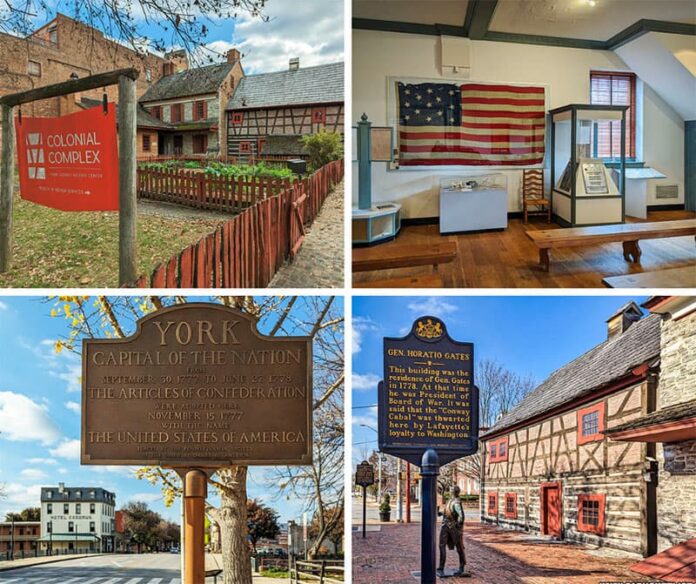
If you’re looking for information about visiting the historic Colonial Complex in York, you’re in the right place!
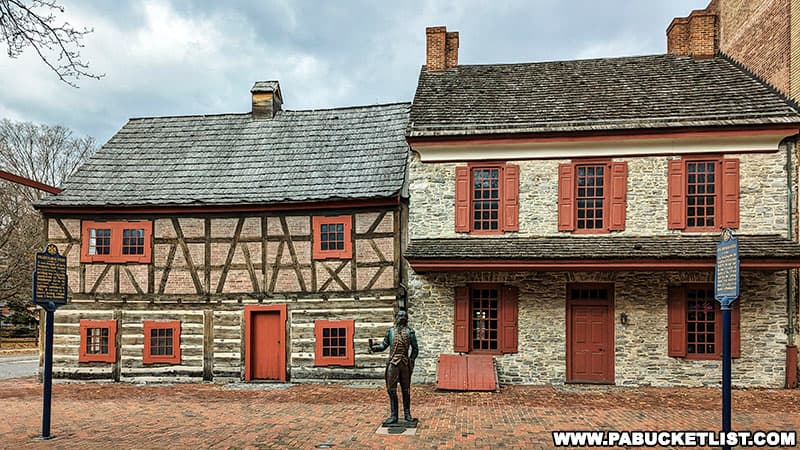
The Colonial Complex in York includes some of the oldest and most historic buildings in the city, which served as the Capital of the Nation for nine months during the Revolutionary War!
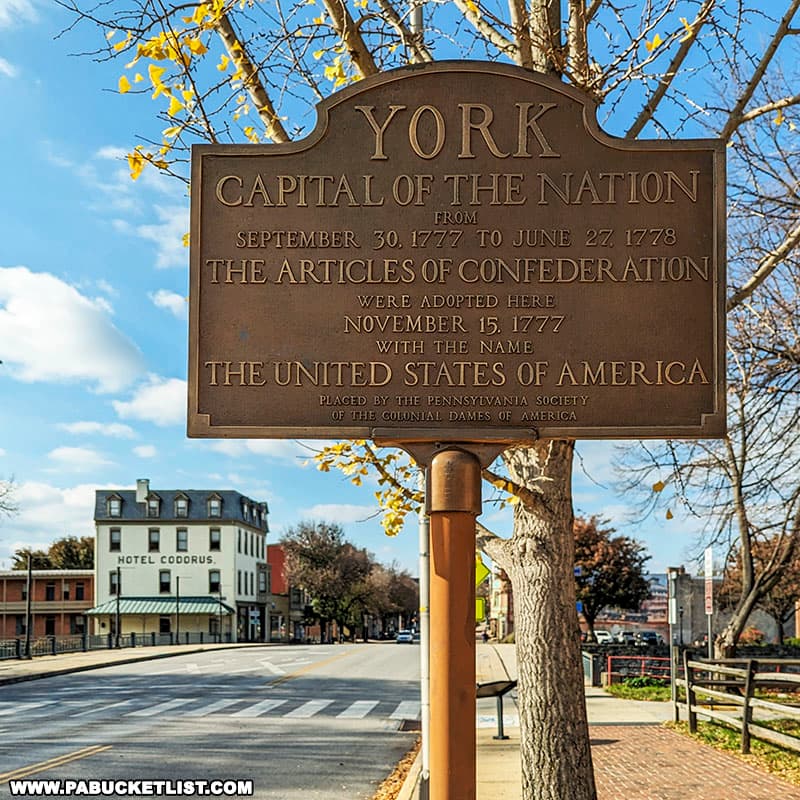
In September 1777, the Second Continental Congress was forced to flee Philadelphia after the the Continental Army was defeated by the British at the Battle of Brandywine (on the western outskirts of Philadelphia).
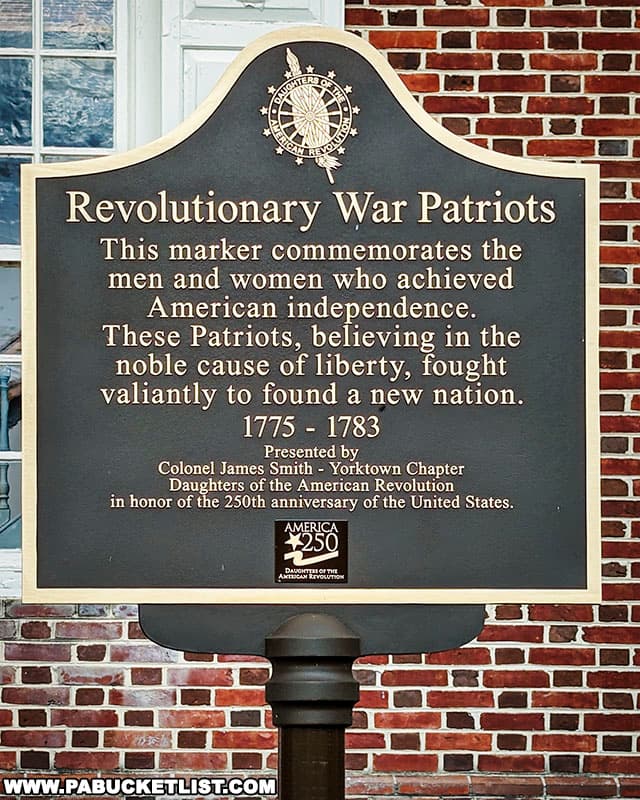
After a one-day stop in Lancaster, Congress decided the west bank of the Susquehanna River would be a safer location, and York became the new Capital for the next nine months.
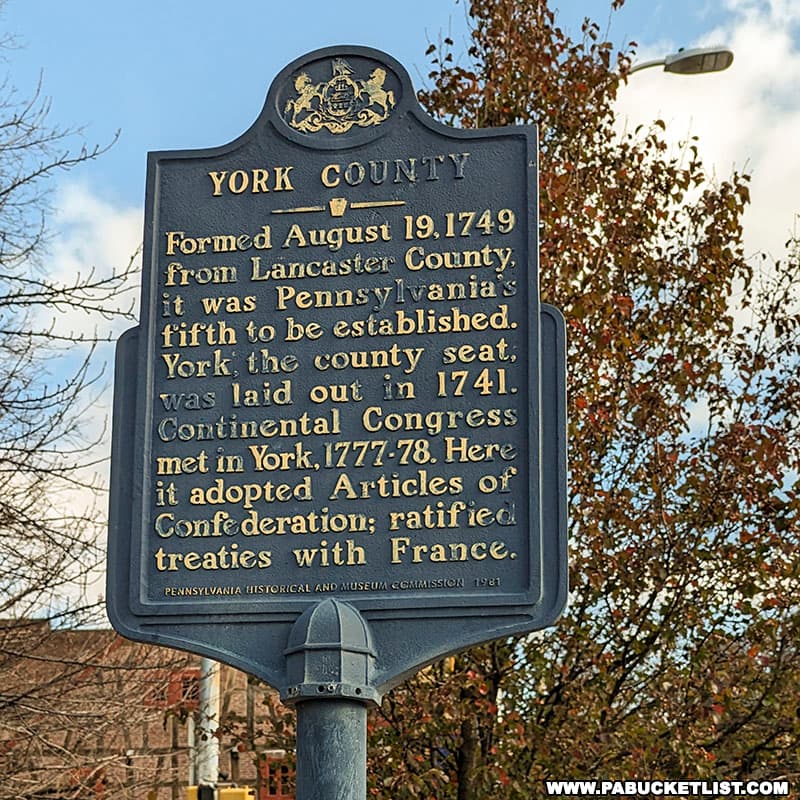
So when you tour the historic buildings at the Colonial Complex today, you are literally walking in the footsteps of the Founding Fathers of the United States!
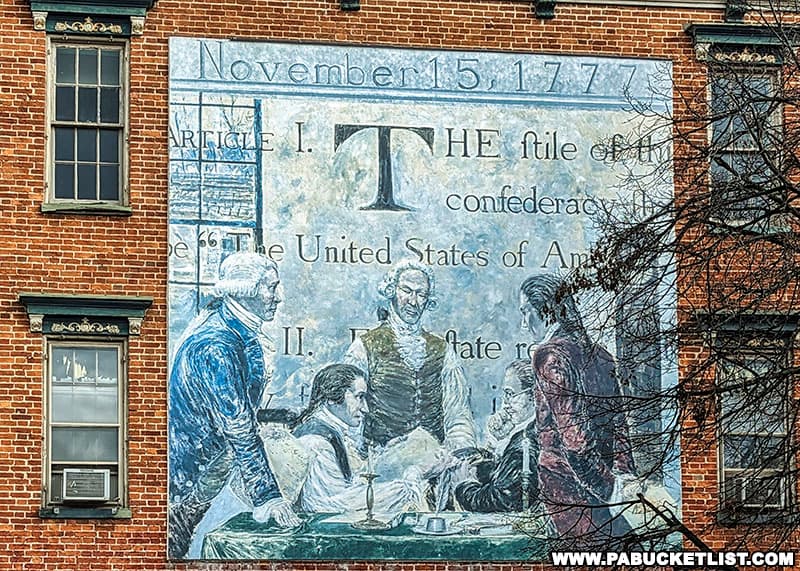
Touring the Colonial Complex
The Colonial Complex in York is open for guided tours from April through November.

Admission prices as of 2022 are : Adults- $15, Students (Age 6-17) – $7, and Children 5 and Under – FREE.
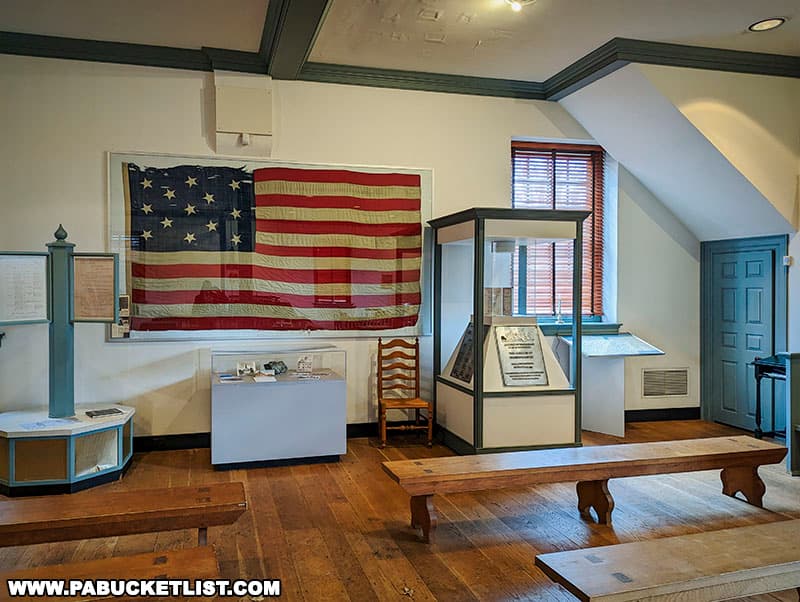
That one admission price gets you into three downtown York museums, including the Historical Society Museum at 250 East Market Street, as well as the Agricultural and Industrial Museum at 217 West Princess Street.
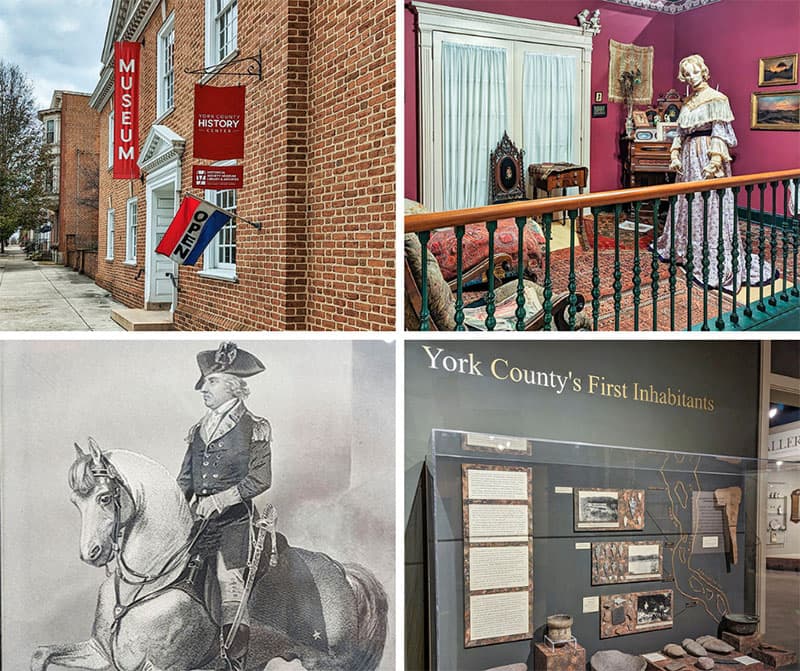
And while you can take self-guided tours the other two museums anytime on the day your tickets are good for, the guided tours of the Colonial Complex are given at specific times, departing from the back of the Colonial Courthouse at 157 West Market Street.
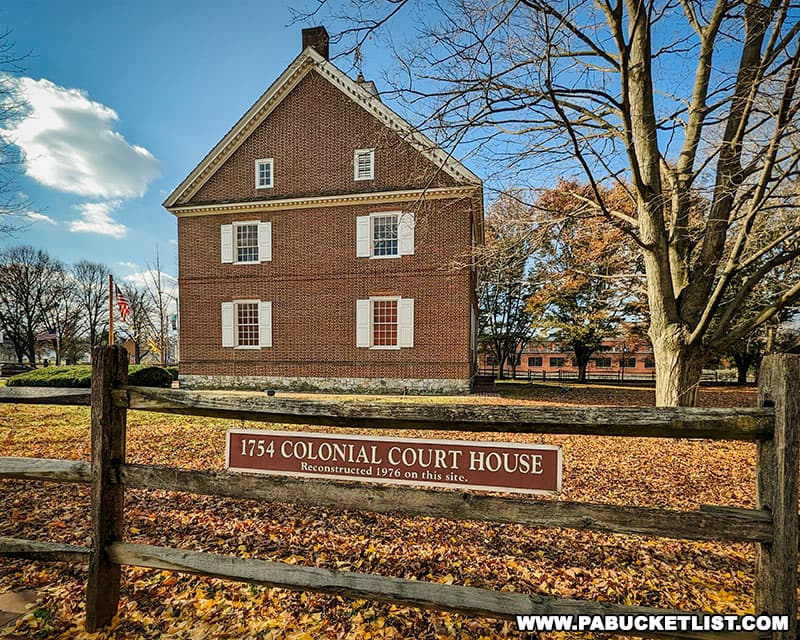
I visited all three museums on the same day, and while I probably take more photos than the average person, was still able to get through them all without feeling too rushed.
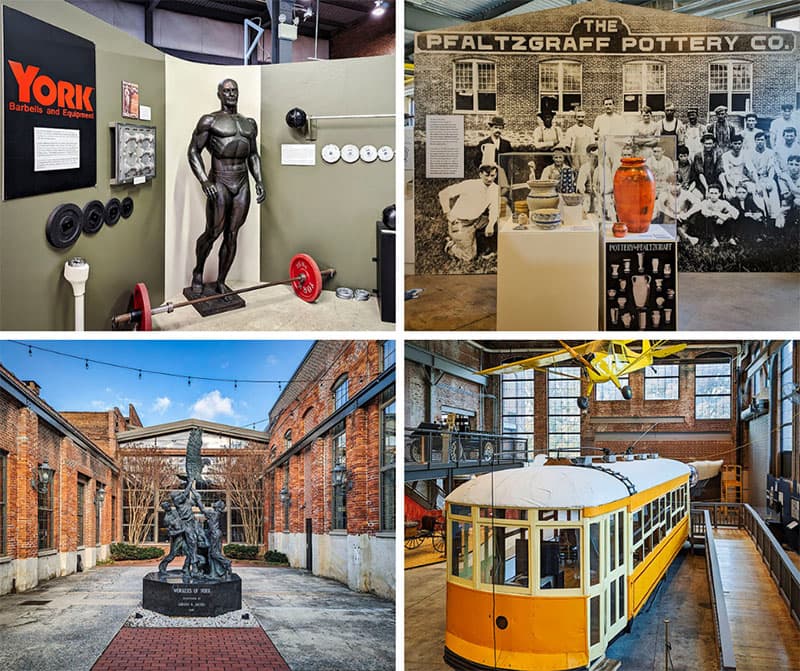
What You’ll See at the Colonial Complex in York
There are four buildings to see at the York Colonial Complex, and I’ll give a brief description of each one below.
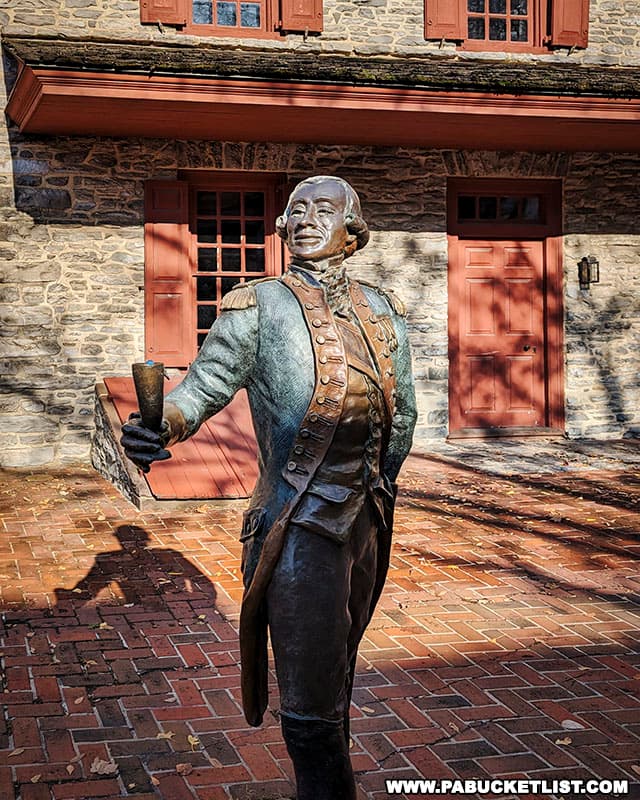
1. The Golden Plough Tavern
Martin Eichelberger built the Golden Plough Tavern in 1741, with building’s half-timbered walls (wooden supports filled in with brick or plaster) and central chimney representing two common characteristics of German-style architecture.
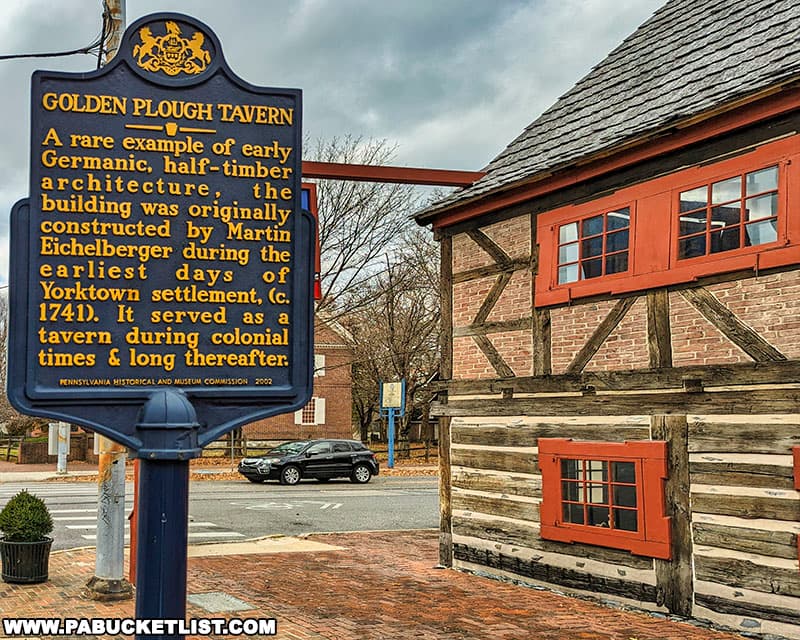
In addition to accommodating travelers with food and lodging, the Golden Plough was a gathering place where locals could socialize and exchange news with travelers.
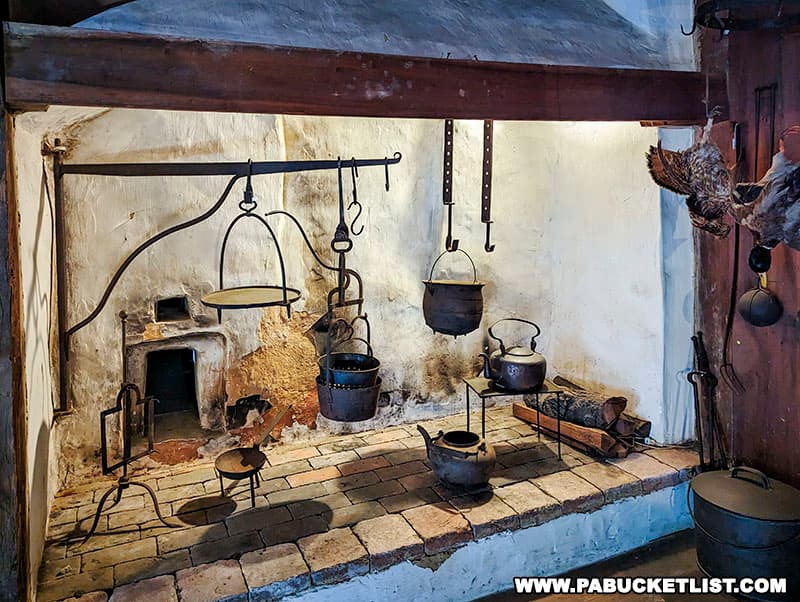
The Golden Plough is decorated in period-correct fashion, closely resembling what it would have looked like when the Continental Congress took up residence in York in 1777.
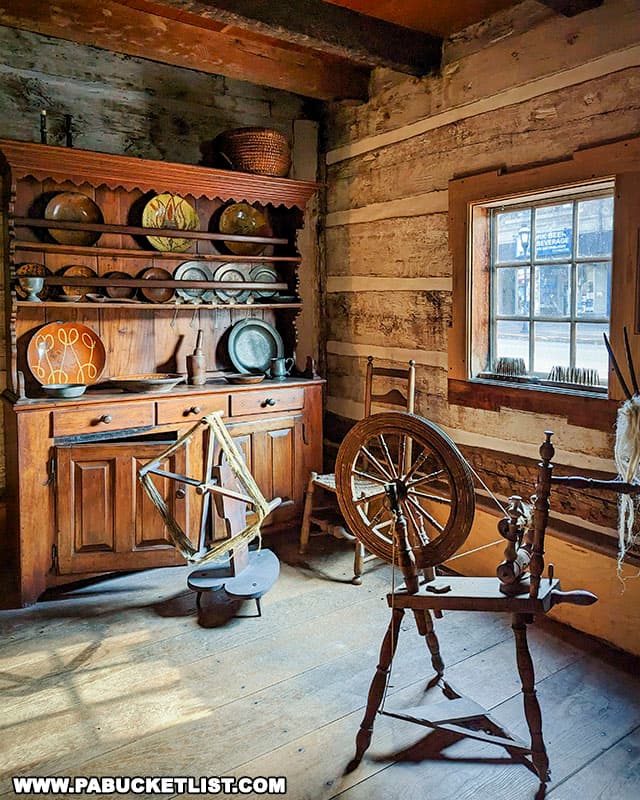
2. The General Gates House
General Horatio Gates rented this house next to the Golden Plough during the winter of 1777-1778, while Congress was meeting in York.
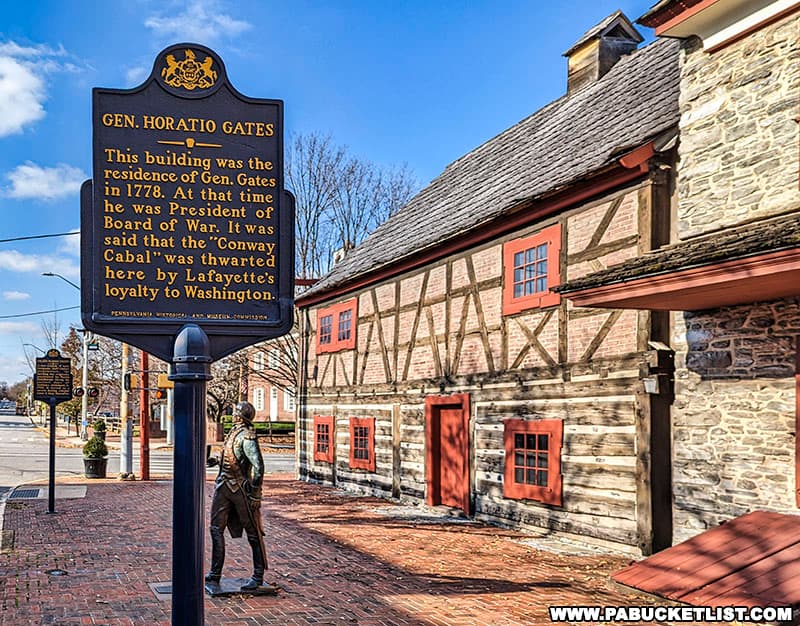
This home was built by Joseph Chambers in 1754 and represents English-style construction, with fireplaces in every room, high ceilings, and large windows.
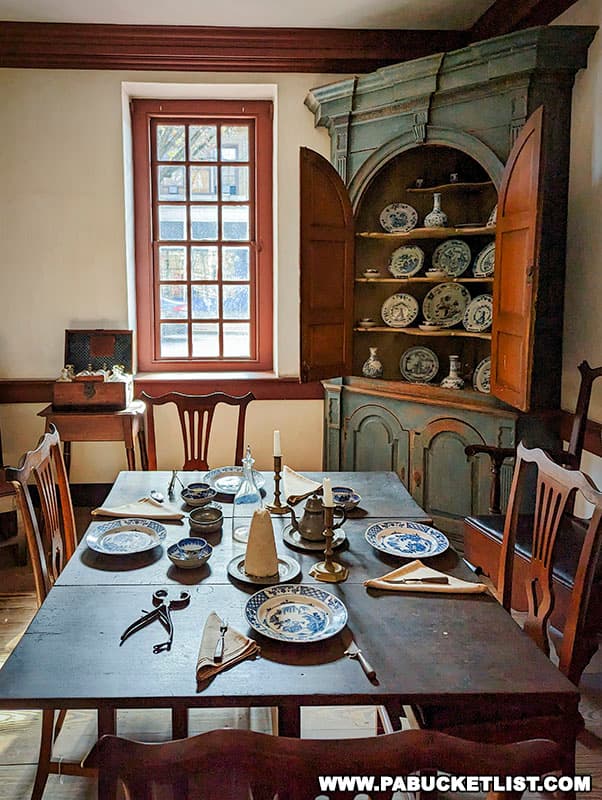
According to some historians, General Gates was involved in a plot called the “Conway Cabal,” whose members were seeking to replace George Washington, commander of the Continental army, with Gates.
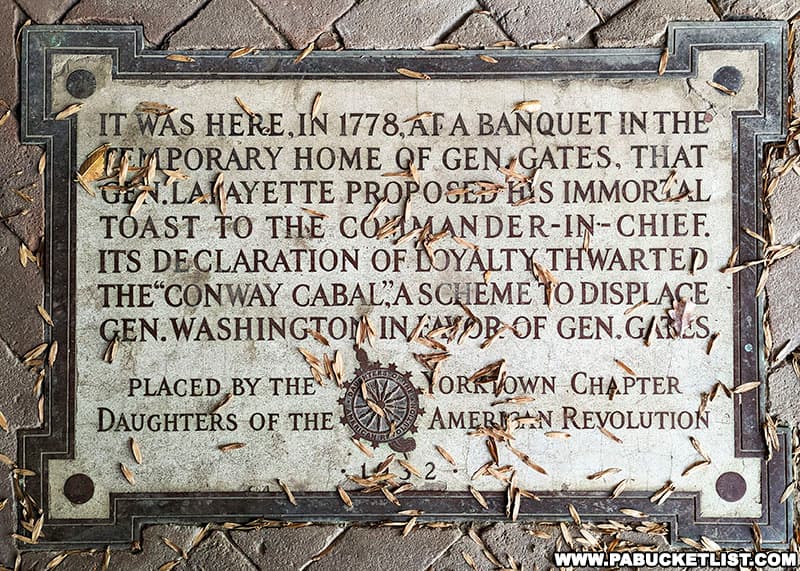
The story goes that the group met in the banquet room at Gates’ temporary house in York, where the Marquis de Lafayette made his opposition to this plan known by proposing a toast to General Washington, thereby thwarting the plot (the plotters knew that without Lafayette/French support, the Revolution was doomed).
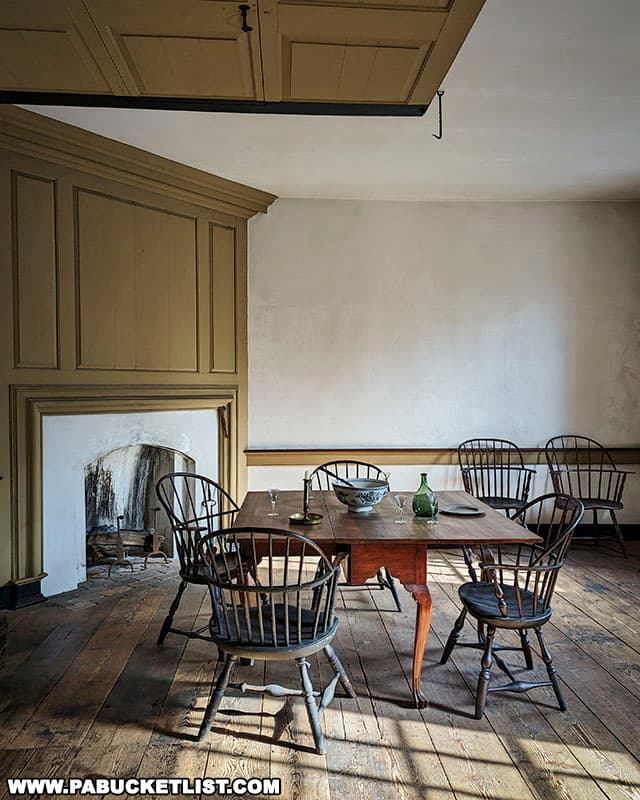
3. The Colonial Courthouse
The original courthouse in York is where the Continental Congress met during their residency in the city.
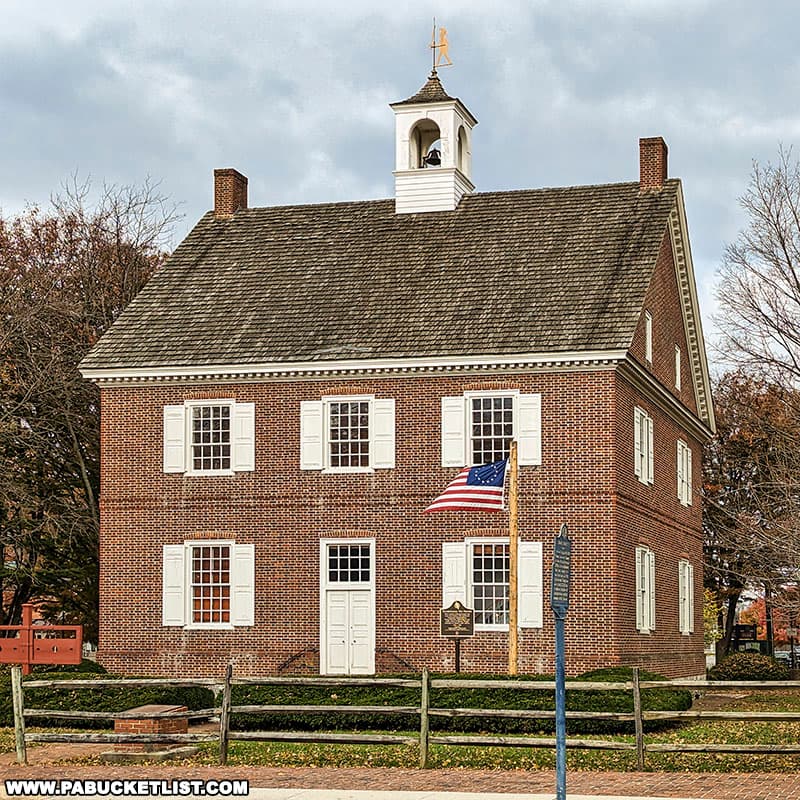
The Colonial Courthouse is a reproduction of that original building (which was torn down in 1841), built in 1976 for the U.S. Bicentennial Celebration.
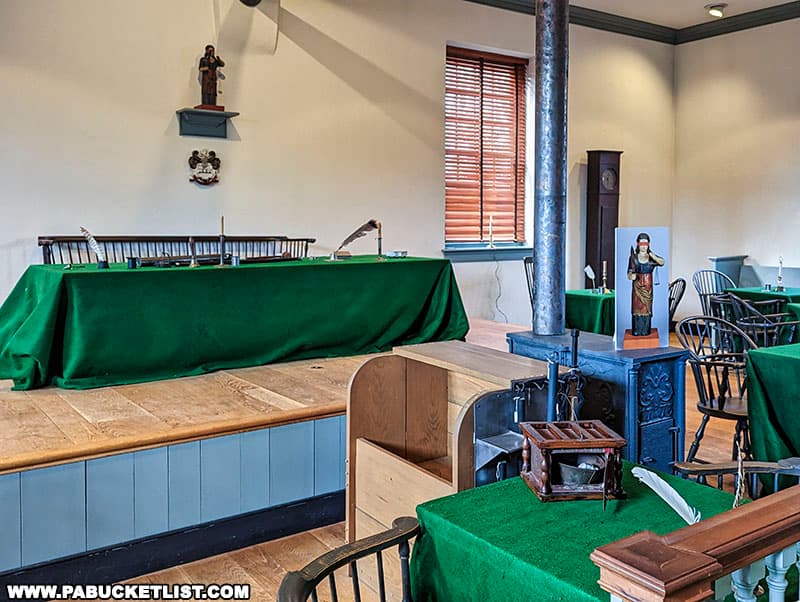
While occupying the courthouse in York, Congress completed the Articles of Confederation (precursor to the present Constitution) and established a treaty of alliance with France, bringing the French military into the Revolutionary War to aid the American cause of independence.
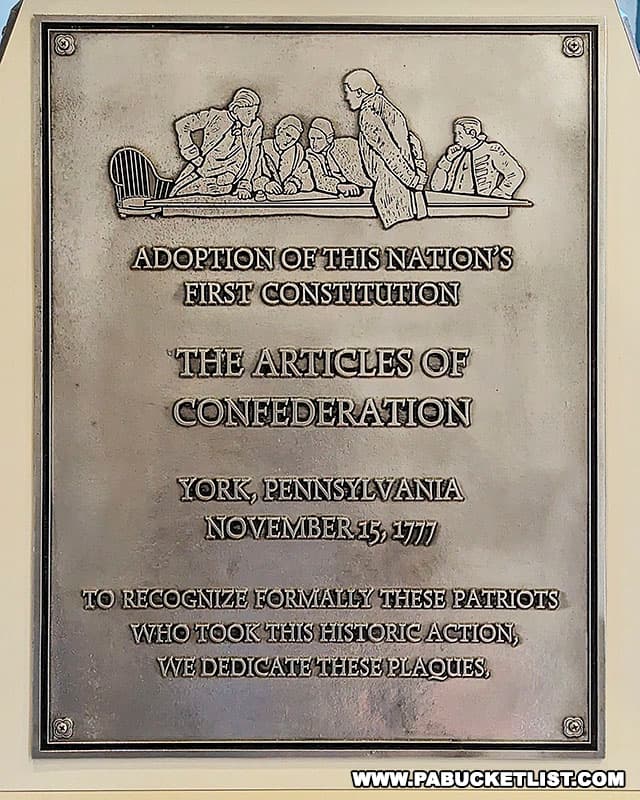
One of the many interesting pieces of memorabilia on display in the Colonial Courthouse is this reproduction of the famed “Domari Nolo” flag of the Pennsylvania Militia, 1st Regiment, which translates into “I Refuse To Be Subjugated”.
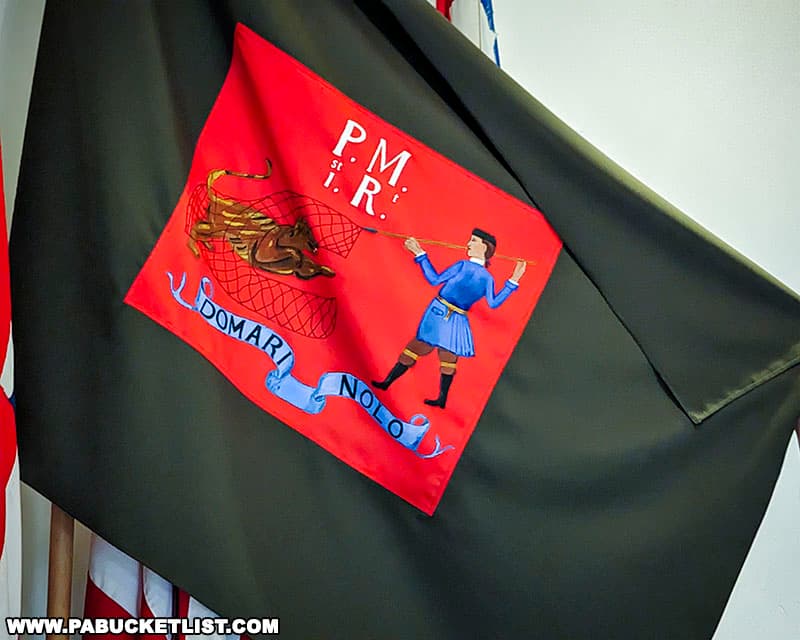
4. The Barnett Bobb Log House
This house was built between 1810 and 1812 and subsequently moved to the Colonial Complex in the 1960s to prevent its destruction; it was not open during my tour of the complex, so I can only show you this outside image.
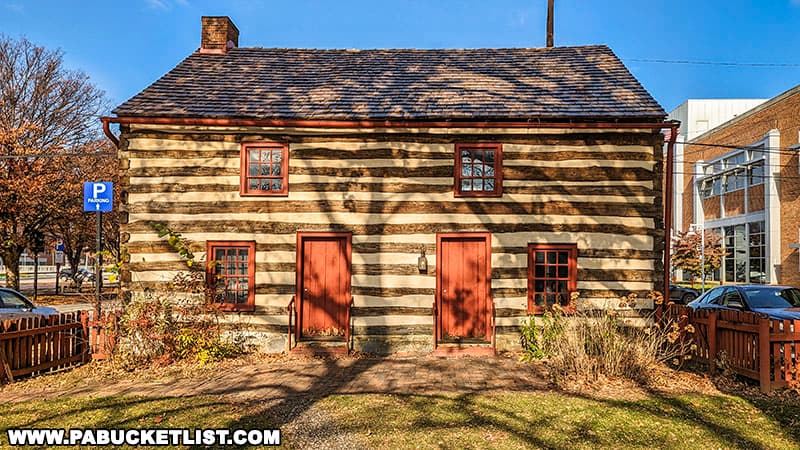
Final Thoughts
While Independence Hall in Philadelphia is more-famously linked to the birth of our Nation, the actions taken by the Continental Congress while residing in York played a crucial role in the successful outcome of the Revolutionary War.
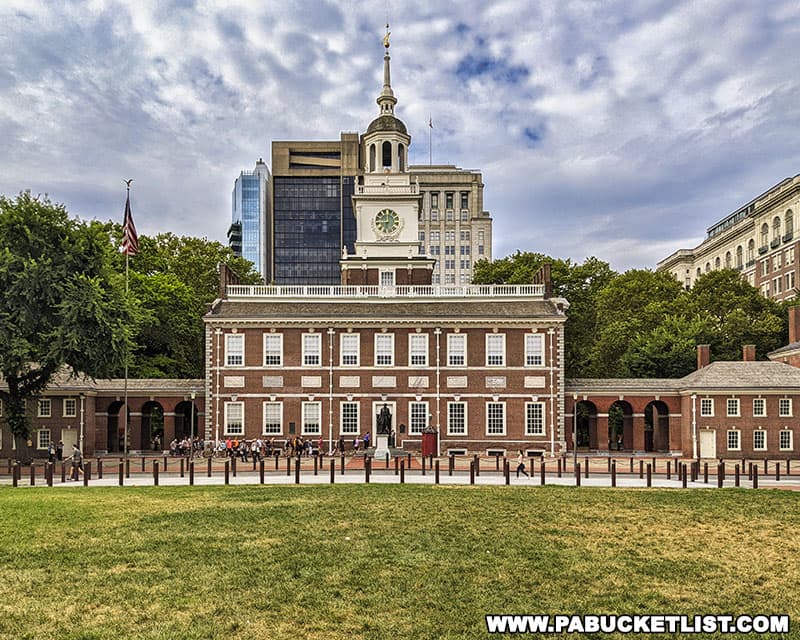
For history buffs and lovers of old architecture, a trip to the Colonial Complex in York is time well spent.
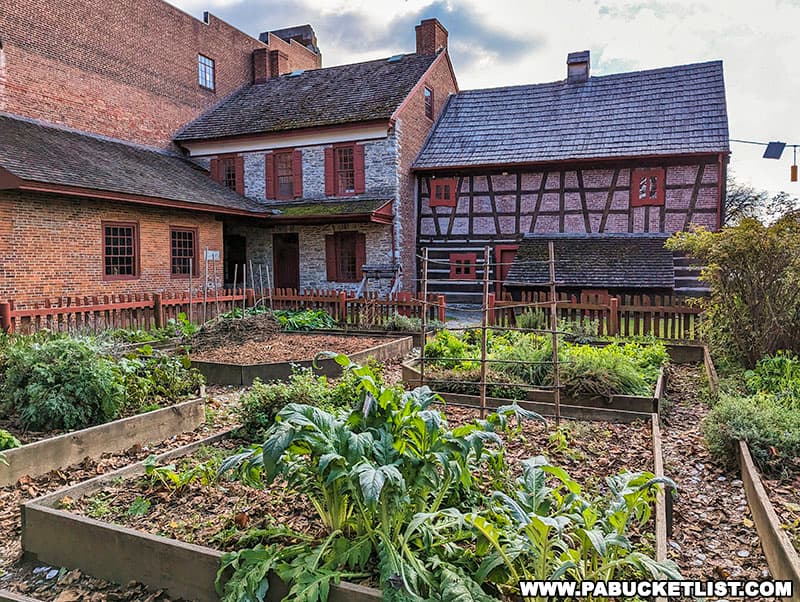
For more information or to schedule a guided tour, please visit the York County History Society’s OFFICIAL WEBSITE.
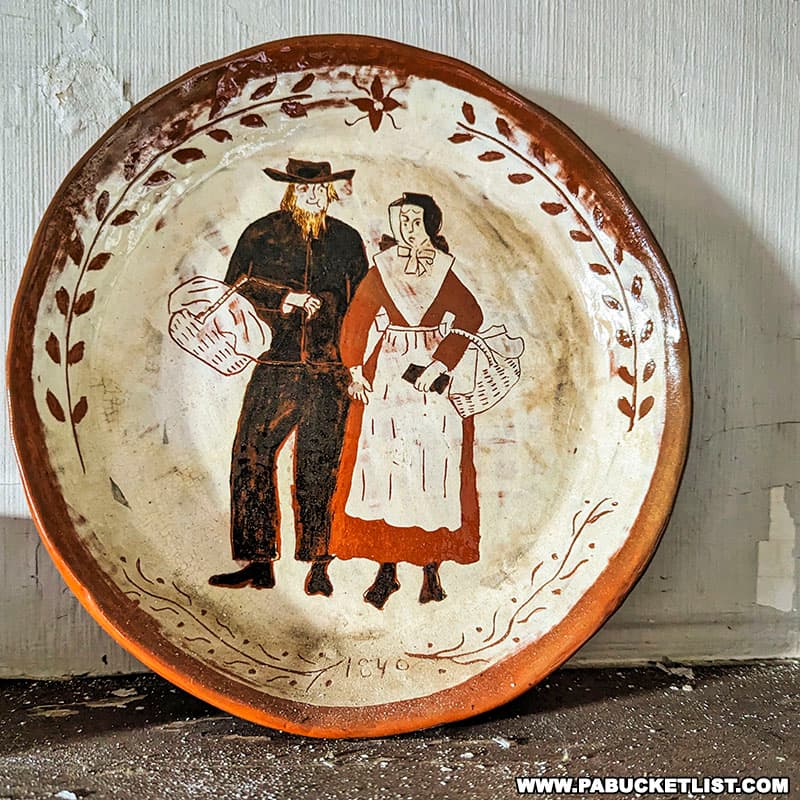
Nearby Attractions
Since 1958, the York County Historical Society Museum has used artifacts and exhibits to highlight the region’s rich heritage and historical significance.

The York County Agricultural and Industrial Museum is housed in a former factory complex in downtown York, and features thousands of artifacts and exhibits highlighting York County’s contributions to the areas of agriculture, transportation, and manufacturing.

York, PA and the First National Thanksgiving dives into the fascinating backstory of this Revolutionary War-era event, which had nothing to do with Pilgrims and turkeys!
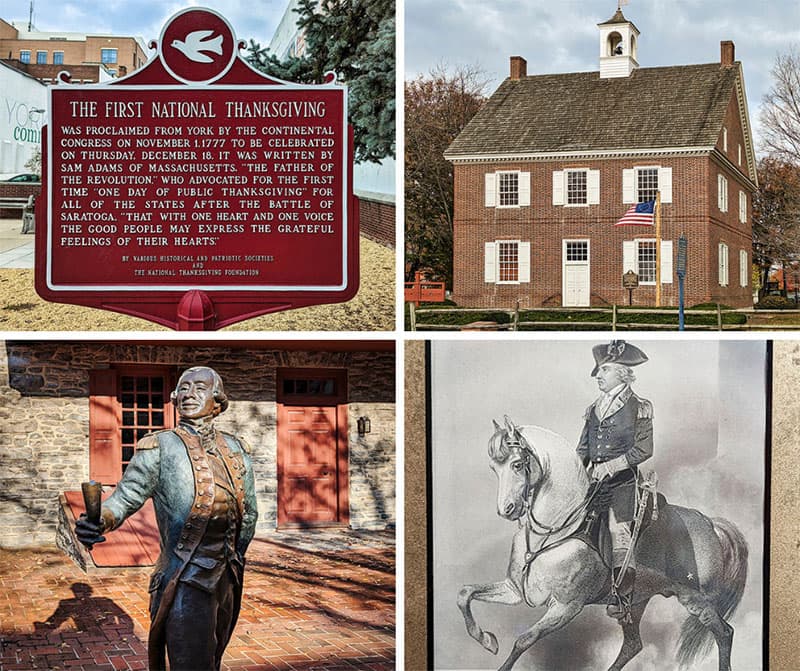
The Haines Shoe House near York is one of PA’s most recognizable roadside attractions, and now it’s a vacation rental home!
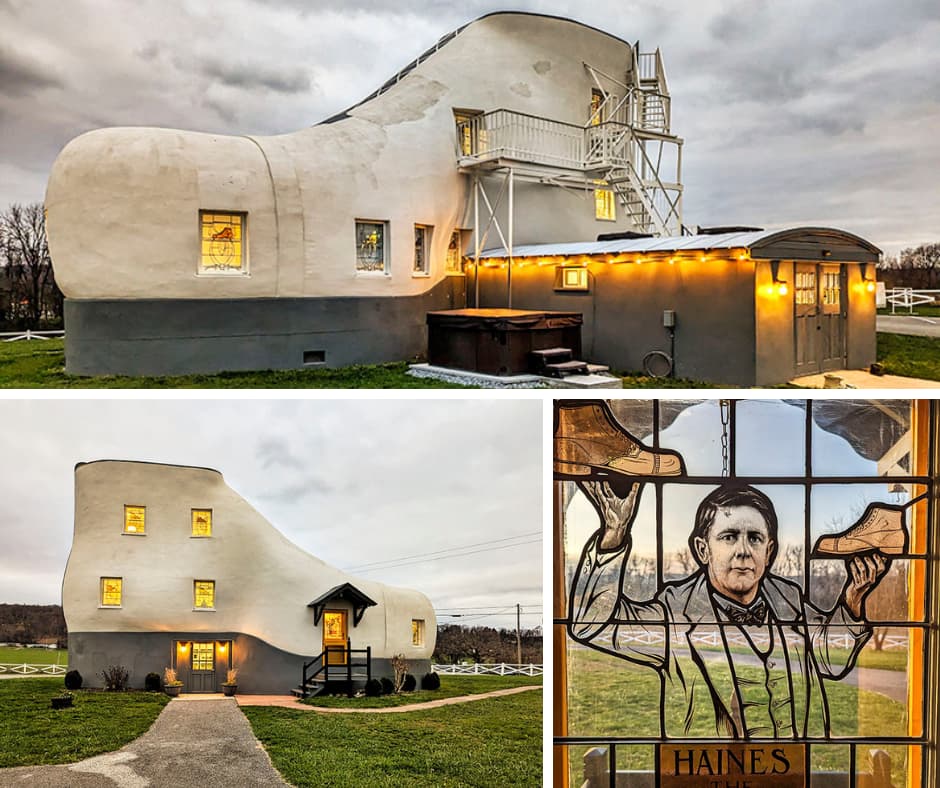
In fact, this is where I spent the night when visiting the Colonial Complex in York.
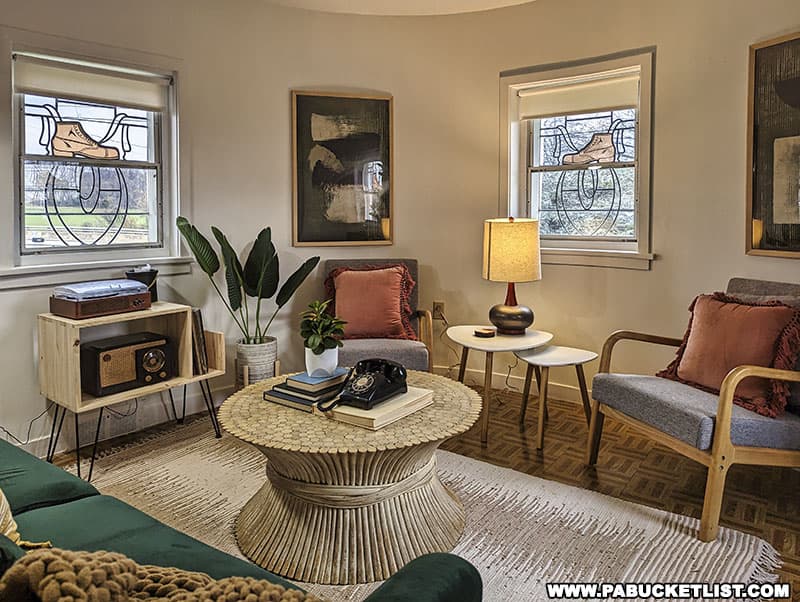
Schull’s Rock Overlook in York County is a fantastic rock outcropping and vista on the west bank of the Susquehanna River, located at Susquehanna Riverlands State Park.

Did you enjoy this article?
If so, be sure to like and follow PA Bucket List on Facebook, Instagram, and/or Pinterest to learn more about the best things to see and do in Pennsylvania!
Click on any of the icons below to get connected to PA Bucket List on social media.


